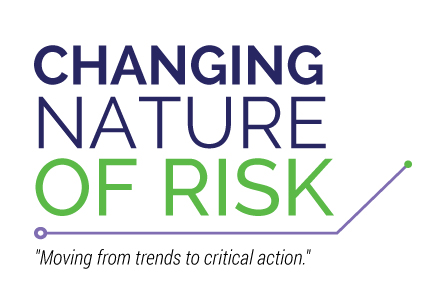Mass Customization
|
Industry Maturity Index: ‘Now’, and ‘Short-term’(1-2 years) Why this is importantThe idea or concept of mass customization is not new. However, with advances in technologies in areas such as digital manufacturing, Big Data and even social media, mass customization is going mainstream. The ACT Changing Nature of Risk workgroup feels that Mass customization will change many aspects of doing business; marketing, product development, as well as changing the nature of manufacturing and product and service delivery. Today’s consumer is demanding products and services that are tailored to their individual needs. Thus, the insurance industry must adapt to this new reality. Insurance products themselves will need to become customizable – no longer does one size fit all. New business models such as Uber and Airbnb (the sharing economy) are also driving the need for customized products. The focus on differentiating individual markets can result in usage-based products and pricing, allowing companies to price, package and sell in a variety of ways. What is it?Mass customization is the new frontier in business for both manufacturing and service industries. At its core is a tremendous increase in variety and customization without a corresponding increase in costs. At its limit, it is the mass production of individually customized goods and services. At its best, it provides strategic advantage and economic value. – Wikipedia New business models such as Uber and Airbnb (the sharing economy) are also driving the need for customized products. Emerging insurtech companies are offering usage-based products and flexible pricing, from Lemonade to Metromile. At its core, mass customization creates tension – between technology and stability, between efficiency and creativity. This is a call-to-action for successful businesses. Broad Implications/UsesThis has applications across many spectrums of our lives;
The ability for companies to create the main structure of products, and allow other companies to create modules to enhance (think of Google, Samsung, or Apple for smartphones). The ability for companies to create the main structure of products, and allow other companies to create modules to enhance (think of Google, Samsung, or Apple for smartphones). Example: Companies like Amazon and Alibaba generate ‘storefronts’ from millions of manufacturers, allowing customized shopping experiences. Economic Impact(s)
Insurance Industry ImplicationsMass Customization can have positive and negative impacts to many areas of our industry. Mass customization efforts within the Property/Casualty insurance marketplace can be enhanced and refined by utilizing new data sources and applying predictive analytics to improve accuracy in identifying and targeting the most appropriate potential stakeholders for specific types of policies, coverages and endorsements. Positive Impacts
Negative Impacts
Mass Customization drives far greater segmentation of customers – in essence, almost every customer is their own market. The independent insurance distribution impact has yet to be fully realized. Recommended ActionsAgents
Carriers
Vendors
Examples/ResourcesEvolving Technology CautionPrivacy issues may be one of the biggest challenges with regard to acceptance of mass customization of products. All participants will need to ensure we understand the impacts and ensure we coordinate cybersecurity education and preparations. We must be careful not to judge & predict based on today’s environment – MANY aspects will change. The social landscape is changing and evolving. Like most new technology based change we must be careful not to evaluate and judge the acceptability or possibility of the change on current standards. The ability to start with a clean slate – and not be tied to legacy ideas, processes and procedures is why InsurTech companies are making inroads. Call to Action
Click here to download a PDF of the Mass Customization Risk Advisory. |
